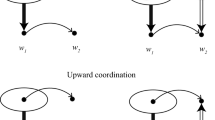Abstract
Several theories of presupposition projection predict that some sentences which intuitively yield unconditional presuppositions should have weaker, conditional ones. For instance, If John is realistic, he knows that he is incompetent is predicted to have the presupposition that if John is realistic, he is incompetent, whereas one certainly infers that John is in fact incompetent. We summarize some difficulties faced by three solutions, DRT, Singh’s ‘Formal Alternatives’, and Singh’s ‘Interacting Alternatives’; we then offer a new analysis which is compatible with several semantic theories of projection, and which does not require the addition of a new representational module. In essence, we obtain unconditional inferences by assuming that speakers may ignore certain parts of a sentence when they accommodate a presupposition—presumably to simplify their computational work. They do so by adding to the context an assumption that would satisfy the presupposition of the sentence no matter which meaning some of its elements have. Depending on which elements are ignored in this way, a variety of strengthened presuppositions are obtained. We speculate on a possible mechanism (which follows some of Singh’s earlier ideas) to determine which of these strengthened inferences are in fact obtained. The analysis correctly predicts some new instances of the Proviso Problem in quantificational examples.
Similar content being viewed by others
References
Beaver David (2001) Presupposition and assertion in dynamic semantics. CSLI Publications, Stanford
Beaver David, Emiel Krahmer (2001) A partial account of presupposition projection. Journal of Logic, Language and Information 10(2): 147–182
Beaver, David, and Henk Zeevat. 2007. Accommodation. In Oxford handbook of linguistic interfaces, ed. G. Ramchand and C. Reiss, 503–538. Oxford: Oxford University Press.
Charlow, Simon. 2009. Strong predicative presuppositions. Slides, workshop on ‘New Directions in the Theory of Presupposition’, ESSLLI 2009, Bordeaux.
Chemla, Emmanuel. 2008. Similarity: towards a Unified Account of Scalar Implicatures, Free Choice Permission and Presupposition Projection. Manuscript, LSCP.
Chemla Emmanuel (2009) Presuppositions of quantified sentences: Experimental data. Natural Language Semantics 17(4): 299–340
Chemla, Emmanuel, and Philippe Schlenker. 2011a. Incremental vs. symmetric accounts of presupposition projection. Manuscript, LSCP and Institut Jean-Nicod.
Chemla, Emmanuel, and Philippe Schlenker. 2011b. The reality of conditional presuppositions. Manuscript, LSCP and Institut Jean-Nicod.
Fox, Danny. 2007. Free choice disjunction and the theory of scalar implicature. In Presupposition and implicature in compositional semantics, ed. U. Sauerland and P. Stateva, 71–120. New York: Palgrave Macmillan.
Fox Danny (2008) Two short notes on Schlenker’s theory of presupposition projection. Theoretical Linguistics 34(3): 237–252
Gazdar Gerald (1979) Pragmatics: Implicature, presupposition, and logical form. Academic Press, New York
George, Benjamin. 2008a. Predicting presupposition projection: Some alternatives in the strong Kleene tradition. Manuscript, UCLA. Available on Semantics Archive at http://semanticsarchive.net/Archive/DY0YTgxN/
George, Benjamin. 2008b. Presupposition repairs: A static, trivalent approach to predicting presupposition. MA thesis, UCLA. Available on Semantics Archive at http://semanticsarchive.-net/Archive/2ZiYmEyN/
Geurts Bart (1996) Local satisfaction guaranteed: A presupposition theory and its problems. Linguistics and Philosophy 19(3): 259–294
Geurts Bart (1999) Presupposition and pronouns. Elsevier, Amsterdam
Heim, Irene. 1983. On the projection problem for presuppositions. In Proceedings of the second west coast conference on Formal linguistics, ed. D. Flickinger et al., 114–125. Stanford: CLSA Publications.
Heim Irene (1992) Presupposition projection and the semantics of attitude verbs. Journal of Semantics 9(3): 183–221. doi:10.1093/jos/9.3.183
Heim, Irene. 2006. A note on the Proviso Problem. Handout from Milan Meeting, Gargnano.
Karttunen Lauri (1974) Presupposition and linguistic context. Theoretical Linguistics 1: 181–194
Karttunen, Lauri, and Stanley Peters. 1979. Conventional implicature. In Syntax and semantics 11: Presupposition, ed. C.-K. Oh and D. Dinneen, 1–56. New York: Academic Press.
Lakoff, George. 1971. The role of deduction in grammar. In Studies in linguistic semantics, ed. C. Fillmore and D. Langendoen. New York: Holt, Rinehart, and Winston.
Lewis David (1973) Counterfactuals. Harvard University Press, Cambridge, Mass
Peŕez Caballo, Alejandro. 2009. Towards a dissolution of the Proviso Problem. In Presuppositions and implicatures: Proceedings of the MIT-Paris workshop, ed. P. Egré and G. Magri. Cambridge, Mass.: MITPWL.
Peters Stanley (1979) A truth-conditional formulation of Karttunen’s account of presupposition. Synthese 40: 301–316
Rothschild, Daniel. 2008a. Presupposition projection in dynamic semantics. Manuscript, Columbia University.
Rothschild Daniel (2008b) Transparency theory and its dynamic alternatives. Theoretical Linguistics 34(3): 261–268
Schlenker Philippe (2008) Be articulate: A pragmatic theory of presupposition projection. Theoretical Linguistics 34(3): 157–212
Schlenker, Philippe (2009). Local contexts. Semantics and Pragmatics 2, Art. 3: 1–78. doi:10.3765/sp.2.3.
Schlenker Philippe (2010) Presuppositions and local contexts. Mind 119(474): 377–391
Schlenker, Philippe. 2011. DRT with local contexts. Natural Language Semantics. doi: 10.1007/S11050-011-9069-7.
Singh, Raj. 2006. A solution to the Proviso Problem: Formally defined alternatives and relevance. Manuscript, MIT.
Singh, Raj. 2007. Formal alternatives as a solution to the Proviso Problem. In Proceedings of SALT 17, ed. T. Friedman and M. Gibson, 264–281. Stanford: CSLI Publications.
Singh, Raj. 2008. Modularity and locality in interpretation. Doctoral dissertation, MIT.
Singh, Raj. 2009. Symmetric and interacting alternatives for implicature and accommodation. In Proceedings of the ESSLLI 2009 Workshop: New directions in the theory of presupposition, ed. N. Klinedinst and D. Rothschild. Paper available at http://essllipresupposition2009.blogspot.com.
Stalnaker Robert (1968) A theory of conditionals. Studies in Logical Theory, American Philosophical Quarterly, Monograph 2. Blackwell, Oxford
van der Sandt Rob (1992) Presupposition projection as anaphora resolution. Journal of Semantics 9(4): 333–377. doi:10.1093/jos/9.4.333
van Rooij Robert (2007) Strengthening conditional presuppositions. Journal of Semantics 24: 289–304. doi:10.1093/jos/ffm007
von Fintel, Kai. 2001. Counterfactuals in a dynamic context. In Ken Hale—A life in language, ed. M. Kenstowicz, 123–152. Cambridge, Mass.: MIT Press.
Author information
Authors and Affiliations
Corresponding author
Rights and permissions
About this article
Cite this article
Schlenker, P. The Proviso Problem: a note. Nat Lang Semantics 19, 395–422 (2011). https://doi.org/10.1007/s11050-011-9072-z
Published:
Issue Date:
DOI: https://doi.org/10.1007/s11050-011-9072-z




